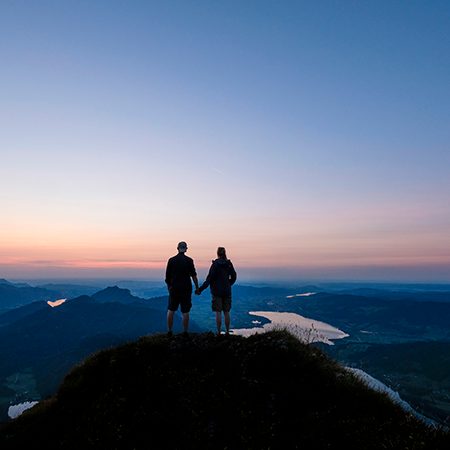From coast to coast
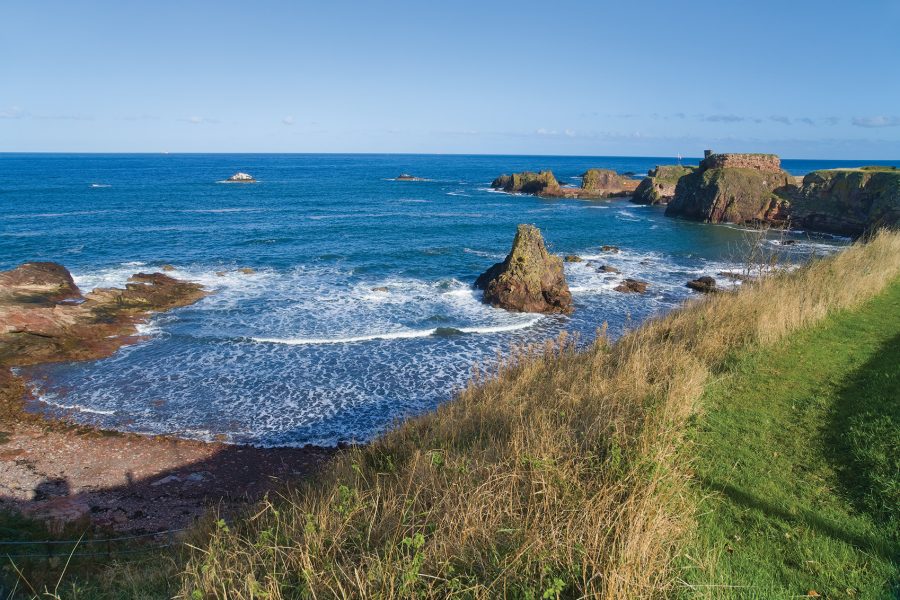
Just keep going, I think. Put one foot in front of another and you’ll be fine. I’m still an hour from my destination, a heavy rucksack on my back and knees aching after a 30-kilometre hike. As twilight falls over Scotland, I console myself that even in darkness, the path ahead is a straight line and it will be hard to go wrong. So long as I don’t fall into the canal.
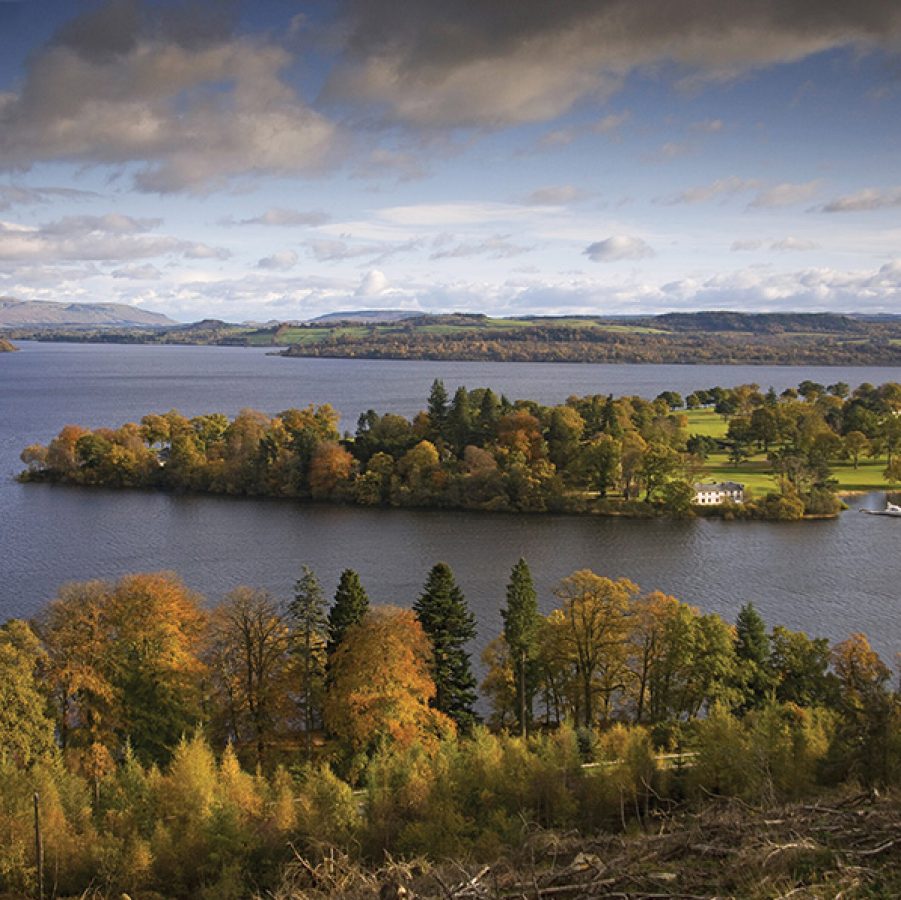
Credit: Universal Images Group/Getty Images
There are many moments like this while hiking along the John Muir Way. If you set out on foot to cross an entire country, some days will inevitably recall the Scots wisdom that the best-laid plans gang aft agley. But when things don’t go as planned: you gaze from the top of the aqueduct that transports the Union Canal across the river Avon, the moonlit waters roaring below, and it’s hard not to feel restored by the beauty of the surroundings.
Set foot in these waterways and mountains, and you’ll understand in an instant why this landscape has inspired poets and painters for generations. There are few better curatives for the soul than walking the entire breadth of Scotland – and there’s no shortage of whisky, seared salmon and Cranachan cake to keep you going along the way.
The John Muir Way celebrates its 10th anniversary this month. It’s a 215km coast-to-coast hiking trail, named in honour of one of the world’s most celebrated conservationists. It stretches from Dunbar on Scotland’s east coast, where Muir was born in 1838, to Helensburgh, the town on the opposite side of the country where he left for the United States at the age of 11. After leaving his homeland, Muir became enthralled by the landscapes he saw on his extensive travels throughout the wilderness of the United States, ultimately becoming a co-founder of the American conservation organisation the Sierra Club and leading the proposals to turn Yosemite and Yellowstone into protected areas.
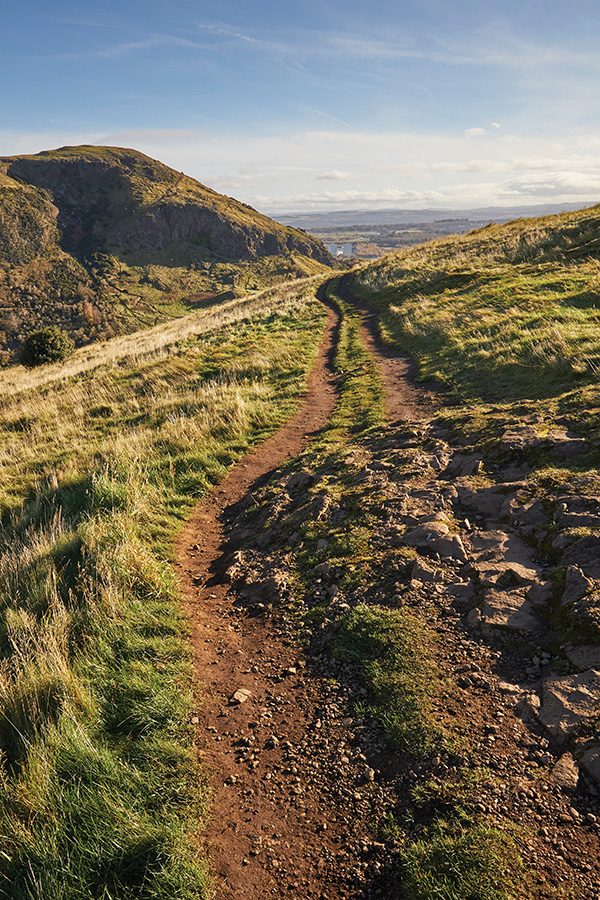
Credit: Andrew Merry/Getty Images

Credit: Andrew Merry/Getty Images
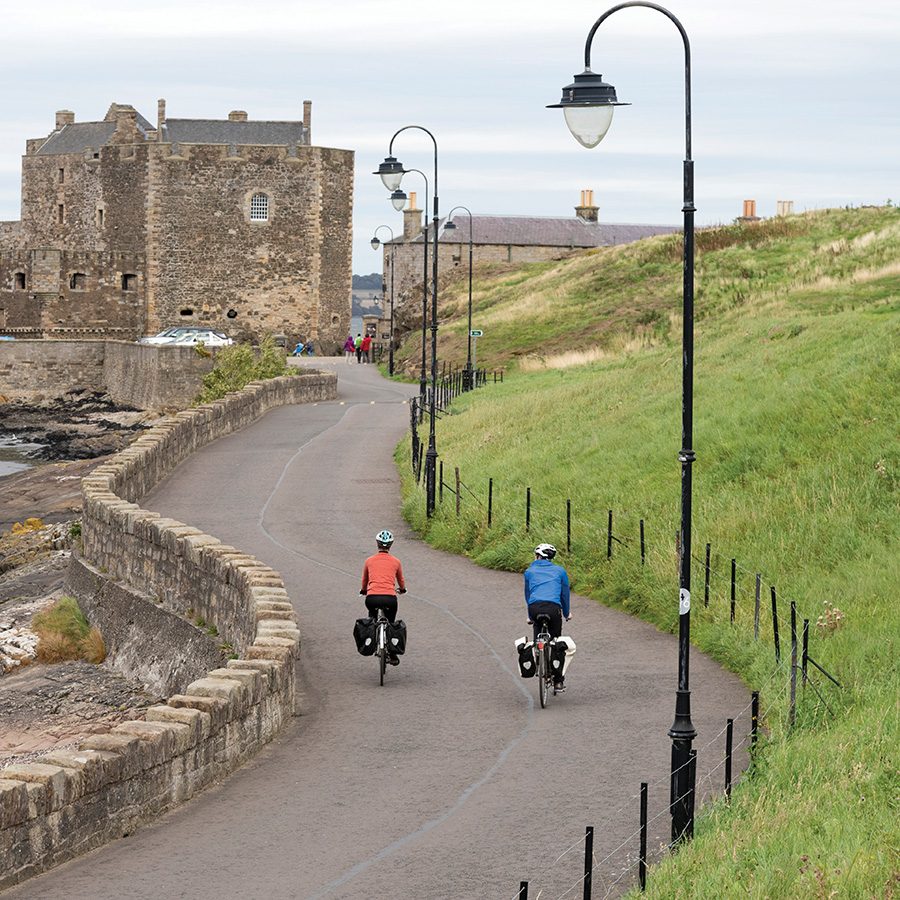
But his namesake hiking route in Scotland pays tribute to his home country and offers delights for nature lovers, fitness fanatics and history buffs alike. The route encompasses dramatic backdrops, including Loch Lomond and The Trossachs National Park, as travellers cross the Highland Boundary Fault, the geological boundary which visually distinguishes the terrain from the lowlands. Passing castles, glens and villages, one can track the remains of the forts dotting the Antonine Wall that once marked the northernmost limit of the Roman Empire in Britain, as cars rush along the motorways linking Glasgow and Edinburgh in the distance. Even in the modern era, you’re never far from ancient times.
As the trail reaches its midpoint, the natural wonders give way to the manmade. Watch with awe as the Falkirk Wheel shuttles vessels between the Clyde and Forth canal, or gaze up at the sight of the colossal Forth Road and Rail bridges from ground level, visual reminders of the industrial and engineering clout that transformed Britain and the world during the 19th and 20th centuries. Then the route makes a detour through the Gothic elegance of central Edinburgh and heads for the golf courses and historic battlefields of the North Sea coast.
Depending on your fitness, the trail can be crossed in just over a week of walking, and the elevation is relatively gentle compared to some of the more rugged terrain of the Highlands. Alternatively, the journey can also be sampled at a more leisurely pace. Stopping by local pubs along the way is a great way to meet other travellers, who will often invite you to join them, especially if you’re travelling solo. Plan an extended stay with a few nights at some of the B&Bs along the trail. Make it known to your host that you’re walking the John Muir Way, and you’ll be met with coos of admiration, or even be rewarded with an extra side of bacon, haggis or black pudding at breakfast.
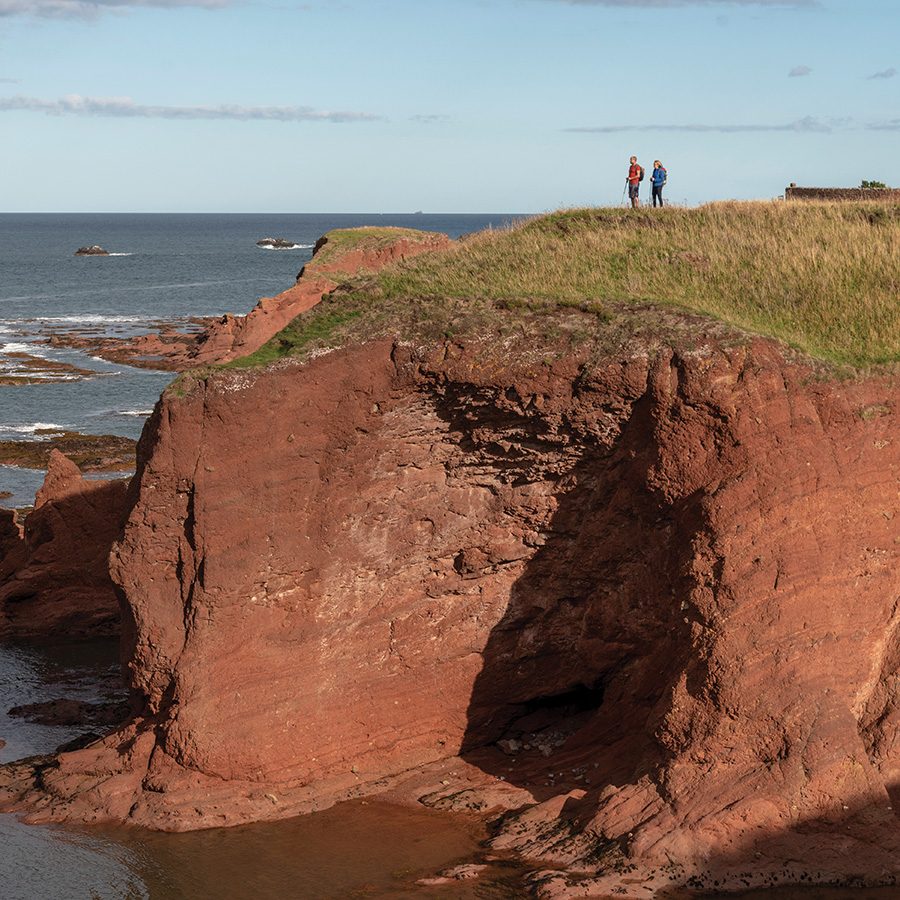
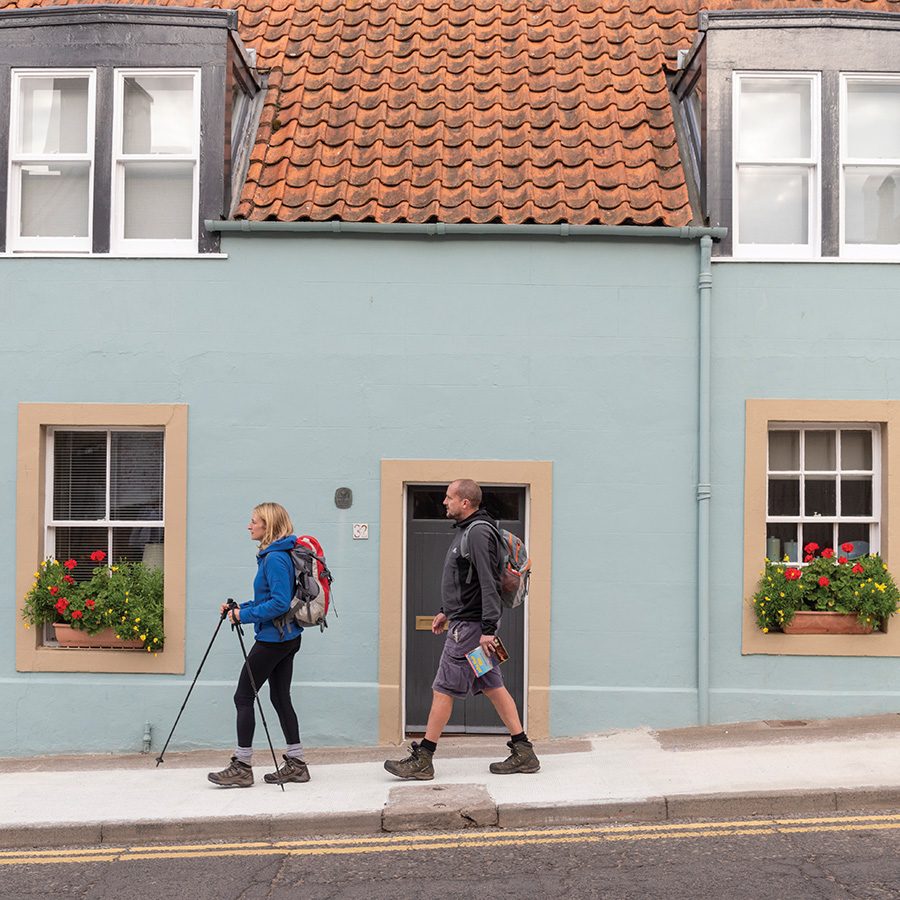
The route also takes in some must-see attractions not far from the beaten track, including the golf courses of North Berwick and the Royal Palace of Linlithgow, home to generations of monarchs and the birthplace of Mary Queen of Scots. Though if you’re like me, you may be more inclined to ditch that in favour of a detour to the National Museum of Flight in East Fortune, a former Second World War airfield that houses a lovingly-preserved selection of jets and one of Britain’s last Concorde airliners.
The route is well signposted throughout and there’s little risk of losing phone signal. John Muir might have preferred the solitude in nature to the intrusion of modern technology, but the joy of this trail is that it can accommodate both moods – you can spend a morning spotting guillemots and dolphins on the shores of the Forth estuary, then slot in a side-trip to the Edinburgh Festival in the evening once you’ve reached your hotel.
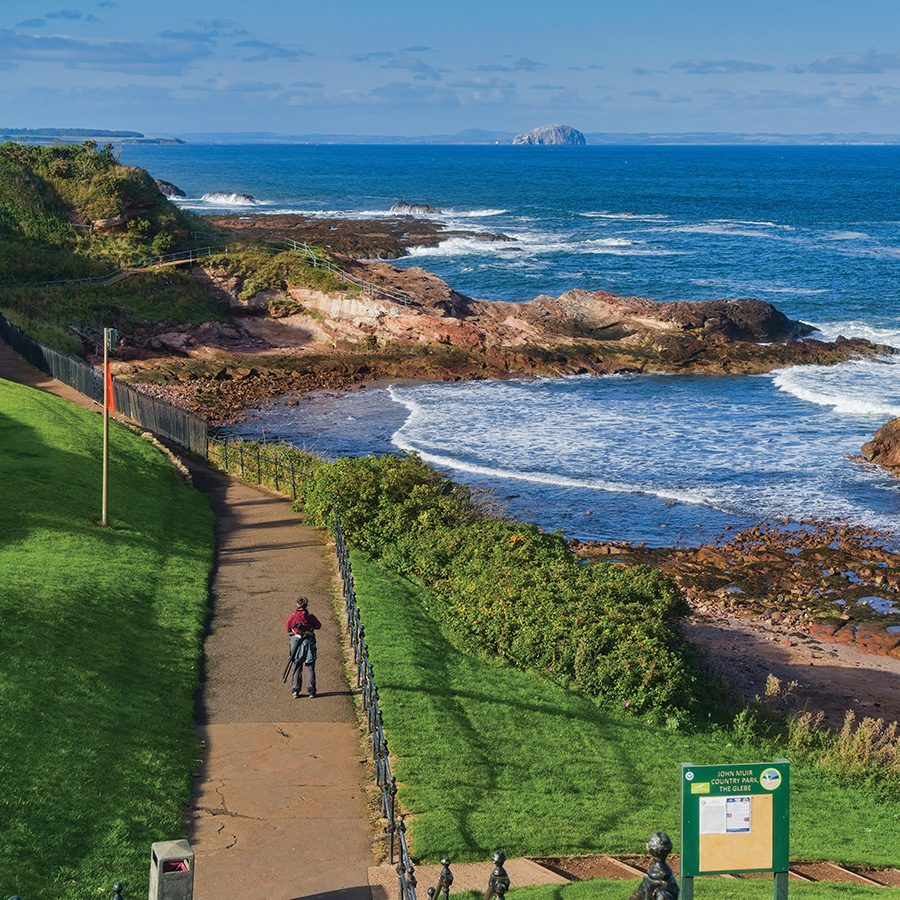
Credit: Dennis Barnes/Getty Images
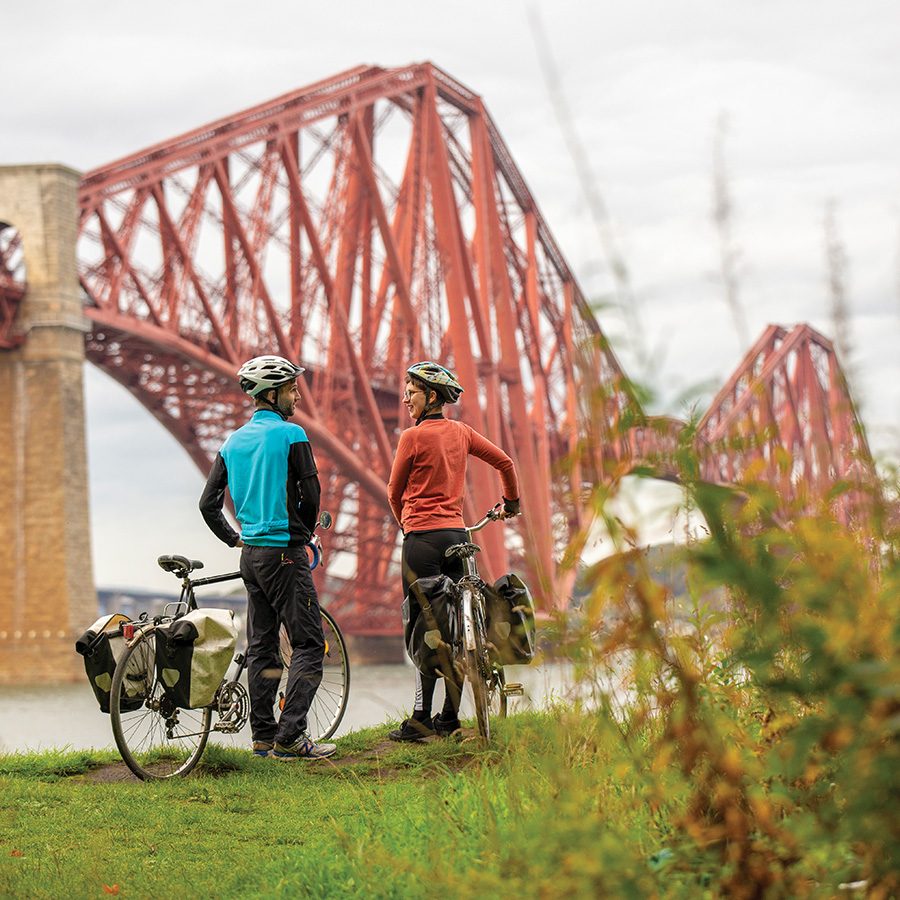
It’s that variety – encapsulating the best of what Scotland has to offer, both present and past – that makes the trek such a draw. And the next time you hear local duo The Proclaimers vowing to walk a thousand miles, you’ll have a sense of the enormity of the undertaking – and the blisters to prove it.
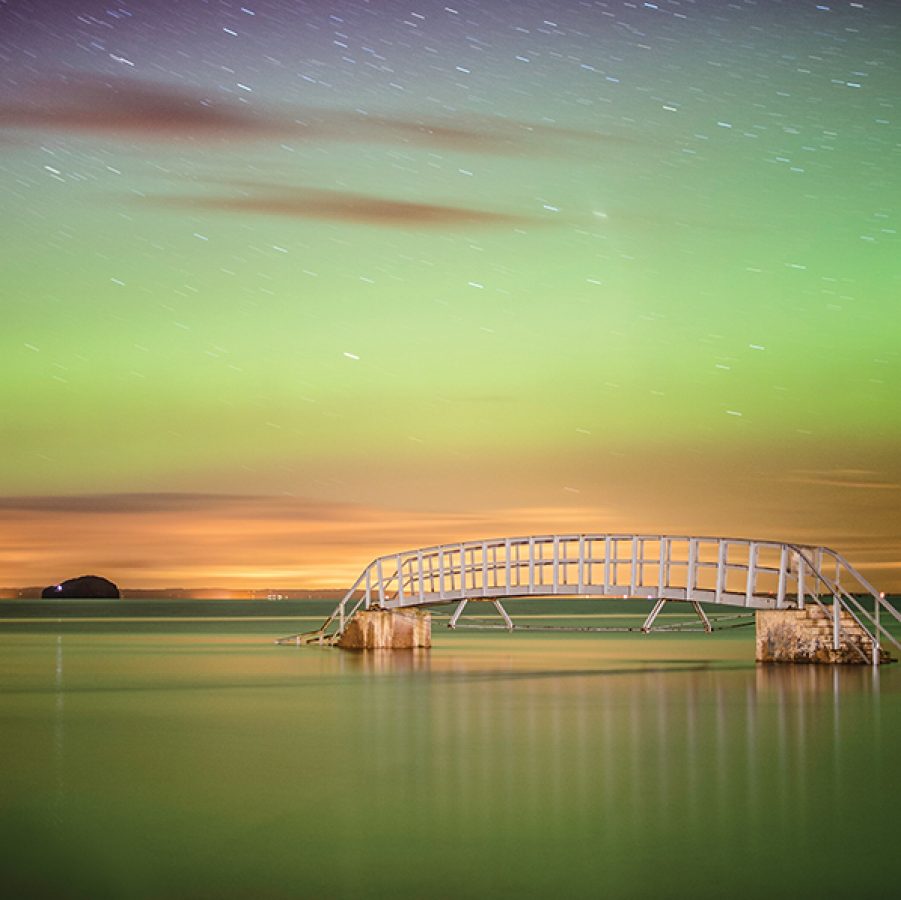
Credit: John Lawson/Getty Images
Five tips on hiking the John Muir Way
1. Beware the weather
Scotland’s weather is notoriously fickle, even in summer. Waterproof clothing is essential, and wearing multiple layers is strongly recommended, should you have to peel off a few when the sun comes out.
2. Let there be light
Travellers crossing the country in high summer can expect daylight from early in the morning until well into the evening hours, with the sun rising in June before 5am and setting after 10pm.
3. Get boots on the ground
Firm footwear is a must: don’t leave home without proper hiking boots.
4. Don’t let the bugs bite
Hikers must contend with midges. These tiny insects may be harmless, but they are a nuisance and can spoil some of the more bucolic parts of the trip. Load up on repellent and bring a net to cover your head.
5. Skip the tent
It’s entirely possible to complete the trail while only staying in hotels and B&Bs, so you don’t have to worry about carrying camping equipment. Spare your knees and enjoy the meals instead.
More inspiration
- China – the Chinese Mainland, Hong Kong SAR, Macao SAR and Taiwan Region
- Hong Kong SAR - English
- Chinese Mainland (China) - English
- Taiwan, China - English
- 香港特別行政區 - 繁體中文
- 中国內地 - 简体中文
- 中國台灣 - 繁體中文
- Africa
- South Africa - English
- Asia
- Bangladesh - English
- Korea - English
- Singapore - English
- Cambodia - English
- 한국 - 한국어
- Sri Lanka - English
- India - English
- Malaysia - English
- Thailand - English
- Indonesia - English
- Maldives - English
- ประเทศไทย - ภาษาไทย
- Indonesia - Bahasa Indonesia
- Myanmar - English
- Vietnam - English
- Japan - English
- Nepal - English
- Việt Nam - tiếng Việt
- 日本 - 日本語
- Philippines - English
- Australasia
- Australia - English
- New Zealand - English
